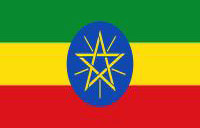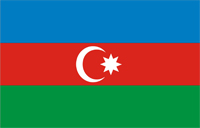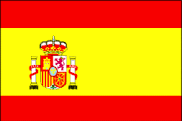
Passover - Unjust people only understand not having children.
Evil and unjust people force good people and even God to take extreme measures as a last resort.

Moses and Aaron confronting the Pharaoh
Prophets:
- Abraham
- Isaac
- Jacob
- Joseph
- Moses
- Aaron
- David,
- Solomon - Israelite king, Jewish or Hebrew.
The Egyptian pharaoh had a dream. Joseph, an Israeli who was living in what is now Palestine interpreted the dream. It meant that in Egypt there would be plenty of food for seven years followed by famine for seven years. This information enabled the pharaoh to save food during the years of plenty and have adequate food during the famine.
The pharaoh was pleased with Joseph for the help and invited him and his relatives to come and live in Egypt. In middle east countries there is a shortage of water. Egypt is an exception, for the river Nile flows in that country. Hence, Joseph and his relatives accepted the invitation. As time passed Joseph’s tribe increased.
The Book of Exodus begins more than four hundred years after Joseph, his brothers and the Pharaoh he once served have all died. The new pharaoh felt that if there is a war between Egypt and Israel, the Israelis in Egypt would become traitors and support Israel. The new leadership in Egypt—feeling threatened by Joseph’s descendants, who have increased greatly in size—embarks on a campaign to subdue the Israelites, forcing them into slavery and eventually decreeing that all Hebrew boys must be killed at birth in the Nile River. The Hebrew women resist the decree, and one woman opts to save her newborn son by setting him afloat on the river in a papyrus basket. Fortunately, the Pharaoh’s daughter discovers the abandoned child and raises him, naming him Moses.
Moses is aware of his Hebrew roots and one day, he kills an Egyptian who is beating an Israelite worker. Moses flees in fear to Midian, a town near Sinai, where he meets a priest named Jethro and marries the man’s daughter, beginning a new life as a shepherd. God, however, is concerned for the suffering of the Israelites, and he appears to Moses in the form of a burning bush. God speaks to Moses, informing him of his plan to return the Israelites to Canaan—to “a land flowing with milk and honey” and to send Moses back to Egypt to accomplish this task. Moses is timid and resists, citing his lack of eloquence and abilities and refuses to return to Egypt. God is angered but encourages Moses, presenting him with a staff for performing miracles and instructing Moses to take his brother, Aaron, with him as an aid. When Moses asks God, “What is your name?” God replies, “I AM WHO I AM”.
Moses and Aaron return to Egypt where Moses organizes the Israelites and confronts the Pharaoh, demanding the release of the Hebrew people from slavery. Moses performs a miracle, turning his staff into a snake, but the Pharaoh is unimpressed and only increases the workload for the slave Israelites.
God responds by inflicting a series of ten plagues on Egypt. Before each plague, Moses demands the Israelites’ release from slavery.
The plagues:
- God turns the Nile River into blood,
- God causes frogs to cover Egypt,
- God turns all of the dust in Egypt to gnats,
- God causes swarms of flies to come into the houses of the Pharaoh and his officials.
- God then strikes Egypt’s livestock with a disease,
- God creates festering boils on humans and animals,
- God sends thunder, hail and fire that destroy crops, livestock, and people.
- God sends swarms of locusts,
- God covers Egypt with “a darkness that can be felt”.
Despite these plagues the Pharaoh does not free the enslaved Israelis. So God is forced to inflict the tenth and final plague. - The tenth and final plague kills all the firstborn Egyptian males in Egypt [not all Egyptian males which would be analogous to the pharaoh’s decree]. Then the Pharaoh relents and releases the more than 600,000 Israelites from slavery. The Pharaoh did not let them go as much as he ordered them to leave – immediately.
Moral of Passover:
The Jewish God knew that even after inflicting nine plagues, if the Egyptian pharaoh would not release the Israelites from slavery, then the only way to drive him to do so was by depriving him and his people, the Egyptians, of their firstborn males.
The tenth and last plague was effective in freeing the Israelis enslaved by the Egyptians.
Evil and unjust people force good people and even God to take extreme measures as a last resort.
Discover Your Abilities and Aspirations!
 $10 $25 $50 $100 Other
$10 $25 $50 $100 Other
Tax Exempt 501(c)3 Non-Profit Organization
Any Currency
“…the peace that is found in libraries and laboratories…” - Louis Pasteur
Copyright © 2023 Ganga Library Inc. All Rights reserved.;













